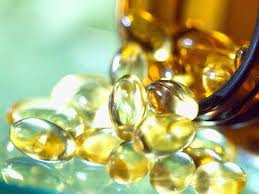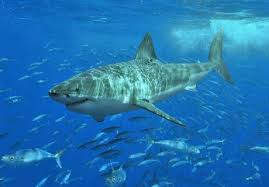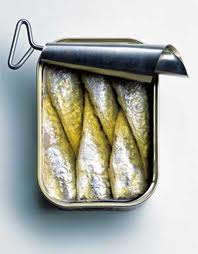We pick things up where we left off, with the proven fact that the valuable long-chain fatty acids EPA and DHA, the jewels of the omega-3 family, are poorly converted from omega-3-rich vegetable oils because of the many obstacles blocking the metabolic pathway. As such, we are back to our fundamental principles: consume fish (if possible fatty) or otherwise consider supplements containing EPA and/or DHA.
For the sceptics, I would like to remind them that the founding theory of humanity, the one that is now most in vogue, is that some apes gradually evolved as humans because they started to consume fish from the lakes in the East-African Rift. This enormous valley of 6000kms long and 50kms wide is now considered to constitute the cradle of humanity, whether it is the ancestor Lucy discovered in Ethiopia or the amazing fossils found on the shores of Lake Turkana in Kenya. It is thanks to the omega 3 fatty acids from fish that the human brain has developed considerably more than that of apes, the latter having developed in a significantly different way.
 I would concede that this is a theory that still needs to be proven! But so too the exaggerated claims that “fish is heavily contaminated by heavy metals and other pollutants and should therefore never be consumed”! It is true that some larger carnivorous fish, such as shark, swordfish, and some tuna are contaminated because they are at the top of the food chain, thus containing higher concentrations of mercury for example…but who really wants to eat shark anyway?
I would concede that this is a theory that still needs to be proven! But so too the exaggerated claims that “fish is heavily contaminated by heavy metals and other pollutants and should therefore never be consumed”! It is true that some larger carnivorous fish, such as shark, swordfish, and some tuna are contaminated because they are at the top of the food chain, thus containing higher concentrations of mercury for example…but who really wants to eat shark anyway?
Having said that, I do not see the issue with small fatty fish such as sardines, herrings, anchovies and mackerel (not the “king mackerel” of the Gulf of Mexico that inhabit highly polluted waters and have thus become the source of an American obsession towards heavy metals in their fish). I am sorry, but whatever people say, I can’t find any reliable figures that can prove toxic concentrations of heavy metals or PCB’s. Everyone is talking about the contamination but nobody is actually supplying the evidence. Furthermore, we are talking about wild fish that totally escape the abomination that is intensively famed fish.
 This reminds me of the mad cow scandal when animal carcasses were used to feed innocent herbivores! It is wrong to say that farm fished do not contain Omega 3 because they do not move much and therefore they accumulate fat. But the nature of this fat obviously depends on what they are eating and here we can encounter many problems resulting from the feed they receive and especially antibiotics used to fight infections that are so common in these concentration camp environments. We are even hearing about GMO fish, in particular of “Frankenstein” salmon, growing as fast as a helium balloon; it's very sad.
This reminds me of the mad cow scandal when animal carcasses were used to feed innocent herbivores! It is wrong to say that farm fished do not contain Omega 3 because they do not move much and therefore they accumulate fat. But the nature of this fat obviously depends on what they are eating and here we can encounter many problems resulting from the feed they receive and especially antibiotics used to fight infections that are so common in these concentration camp environments. We are even hearing about GMO fish, in particular of “Frankenstein” salmon, growing as fast as a helium balloon; it's very sad.
Just as we say do not throw the baby out with the bath water; I persist in recommending small wild fish as mentioned above, despite the torrent of criticism towards fish in general. You can also consume sardines, herrings, anchovies and mackerel in tins, which doesn’t alter the quality of the omega 3 fatty acids nor their content. I also question; what role is the meat lobby playing in this controversy?
 Why attack fish when “everything” we eat is contaminated?? Terrestrial animals do not escape the effects of pollution and don’t plants constitute the primary target for GMO?? I am somewhat perturbed that our wild little sardines do not receive an “organic’ label while at the same time bringing us the best nutrients at a low cost.
Why attack fish when “everything” we eat is contaminated?? Terrestrial animals do not escape the effects of pollution and don’t plants constitute the primary target for GMO?? I am somewhat perturbed that our wild little sardines do not receive an “organic’ label while at the same time bringing us the best nutrients at a low cost.
To close the discussion regarding fish I must share a concern, which is the need for the principle of sustainable fishing (as long as it is properly applied). For beautiful illustrations of fatty fish, I recommend that you look at the conference on “Fatty Acids”: see “Conferences/Polyunsaturated Fatty Acids”, section 9b on my website www.gmouton.com.





